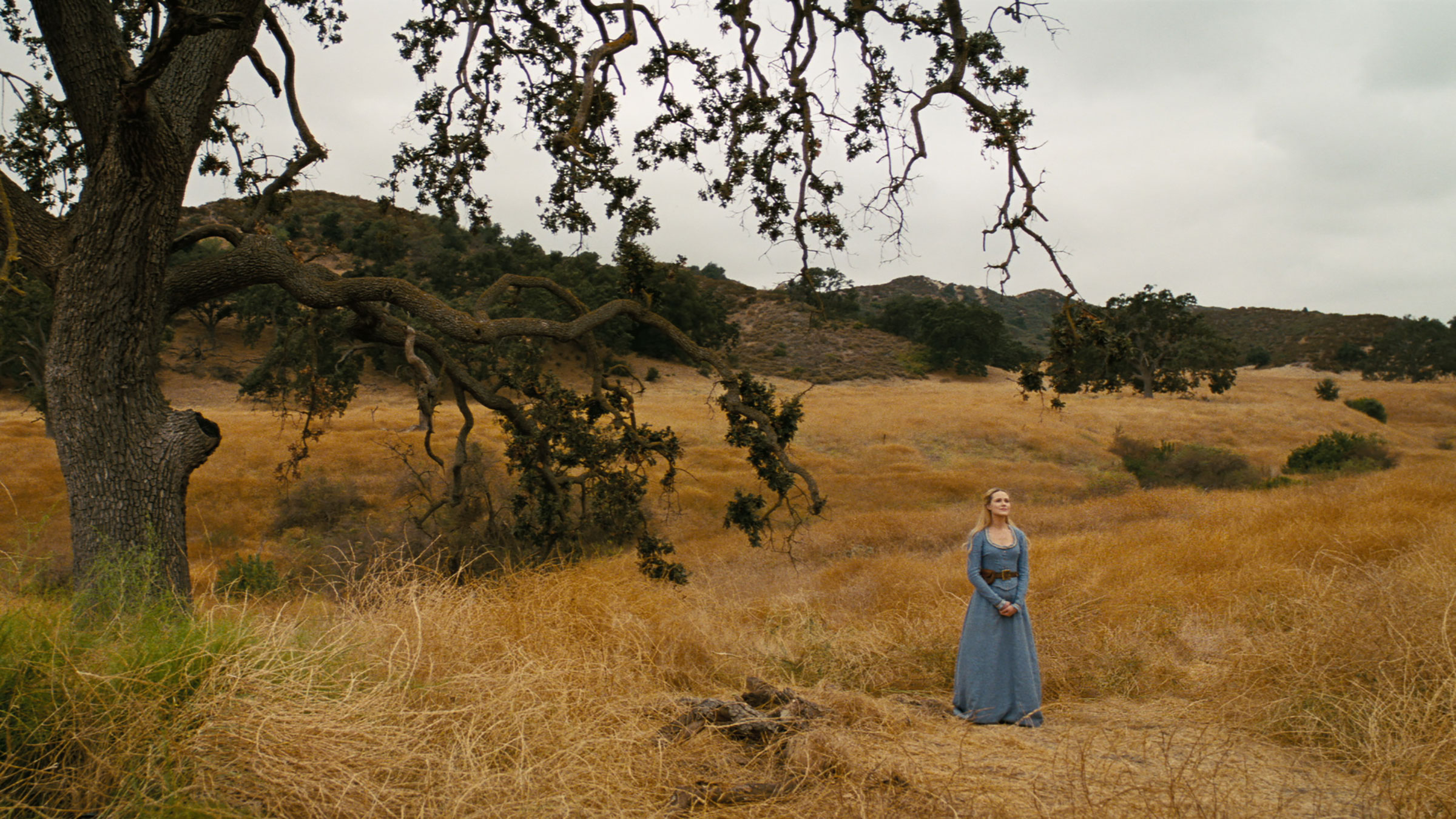
The teenage shooters who murdered 13 people at Columbine High School in 1999 didn’t live long enough to be held accountable, so America found another scapegoat: Marilyn Manson. Seizing on rumors that Eric Harris and Dylan Klebold worshiped the flamboyantly blasphemous rocker, politicians, and pundits who’d waited years for an excuse to bury him protested his shows, ranted about his onstage antics, and lobbied record labels to stop distributing music with violent themes. In schools across the country, kids got treated like criminals for wearing his T-shirts. As the furor escalated, his band had to cancel a tour. When it was eventually revealed that the killers had never been Manson fans, the truth didn’t even seem to matter.
Twenty-two years later, on Feb. 1, 2021, the actor Evan Rachel Wood, who’d spent years advocating for sexual abuse victims but had never publicly named her abuser, posted a message on Instagram. “The name of my abuser is Brian Warner, also known to the world as Marilyn Manson,” she wrote. “He started grooming me as a teenager and horrifically abused me for years.” Despite fears of retaliation, Wood continued, “I am here to expose this dangerous man and call out the many industries that have enabled him, before he ruins any more lives.”
Her ordeal is the subject of Phoenix Rising, a sensitive two-part HBO documentary from The Case Against Adnan Syed director Amy Berg that will air March 15 and 16. Berg has said the project began as “an Erin Brockovich story,” tracking Wood’s successful campaign to extend the statute of limitations on domestic violence in California. “That was what we were making—until she decided to name him publicly,” the director told Variety. In the version that ultimately got made, we watch Wood and artist Illma Gore (who’s been described, alternately, as Wood’s friend and her romantic partner) gather evidence against Warner. Meanwhile, the actor tells her story.
In tying her nightmarish account to similar reports from less-famous Manson exes, as well as highlighting instances in which he publicly admitted to mistreating women, Phoenix Rising raises the haunting question of why a man whose persona drew such outrage never came under scrutiny for what Wood and her fellow survivors describe as a pattern of predatory behavior. Berg subtly yet persuasively makes the case that the real—and disturbingly conspicuous—threat he posed was not to Colorado high schoolers he’d never met or even to God-fearing Americans in general, but to young women. And the public chose to ignore it.
The reports are harrowing. (Readers sensitive to the details of sexual abuse may want to skip this paragraph.) Among Wood’s long list of allegations are claims that Warner controlled her, deprived her of sleep, forced her to take drugs, and repeatedly raped her while she was unconscious. She says his resistance to birth control resulted in an unwanted pregnancy—and that he ordered her to make him dinner the same day she had an abortion. While she details several violent incidents, one standout is an alleged beating with an authentic Nazi whip. (Wood is Jewish.) According to the actor, Warner penetrated her while she was intoxicated, during what was supposed to be a simulated sex scene, on the set of his 2007 music video “Heart-Shaped Glasses,” which cast Wood, then 19 years old, as a modern-day Lolita. “I was coerced into a commercial sex act under false pretenses,” she says. “I was essentially raped on camera.”

Even the most lurid accusations must be vetted, of course. In on-screen text at the end of each episode, Berg notes that the Manson camp declined to comment on the allegations made in the film; she quotes a previous statement from his legal counsel establishing that “Mr. Warner vehemently denies any and all claims of sexual assault or abuse of anyone.” Earlier this month, Manson filed a lawsuit against Wood and Gore, accusing the women of a “conspiracy,” in the service of which they supposedly “secretly recruited, coordinated, and pressured prospective accusers to emerge simultaneously with allegations of rape and abuse against Warner.” One woman, Greta Aurora, who had what she calls “a brief sexual relationship” with the singer in 2011, when she was 19 and he was 42, has emerged to protest that he was “extremely nice.”
Be that as it may, Wood and Gore were able to find several women who were willing to go on the record against him. At a tearful gathering documented in the second episode, they commiserate over relationships that apparently derailed their lives. Also present for that meeting is Dan Cleary, a former employee of Manson’s who identified him as Wood’s abuser in a Twitter thread months before she went public on Instagram. In Phoenix Rising, he doubles down on his eyewitness account, corroborating her recollections of times when she was on tour with the band and none of the many people present who observed—or were coerced into participating in—her abuse intervened. In a clip interspersed with the closing credits, from Twitch, Limp Bizkit guitarist and onetime Marilyn Manson band member Wes Borland beseeches fans to “relax about the allegations towards the women” because “they are speaking the truth.”
If this is what a conspiracy looks like, then you have to wonder why so many participants would risk the wrath of Manson’s lawyers and fans. Search the rocker’s name on Twitter, and you’ll see that toxic stan culture isn’t just for pop divas. In the doc, before going public, Wood takes her young son, whose face Berg is careful not to show on camera, and flees California for an undisclosed location.
The #MeToo movement has been slow to make inroads into the testosterone-soaked corner of the music industry where Borland and Cleary still work; these guys aren’t exactly incentivized to promote feminism. With widespread awards recognition for her performance in Westworld, among other projects, it’s not like Wood is in need of a career boost. If anything, you can imagine the continued association with a figure as retrograde as Manson threatening her profile. As for the other survivors, well, what have the victims who came forward in Surviving R. Kelly or Leaving Neverland or We Need to Talk About Cosby or any other documentaries about famous alleged abusers gained besides—in too few cases—justice?

In that respect, Wood’s crusade has much in common with so many other sexual misconduct exposés that have roiled the entertainment industry over the past five years. Terms that come up, like “grooming” and “love bombing,” have long since become part of the lexicon—to the extent that they threaten to hurt more than help, rendering individual horror stories generic. What separates Phoenix Rising from its predecessors is Manson’s rare position in the culture. An edgelord Alice Cooper figure for older millennials, he was the single most controversial rocker to break into the mainstream during his late-’90s heyday. For three decades now, he’s been saying things, and doing performances, that scandalize Middle America. It’s very easy to make the argument that he’s a scary guy, but very hard to convince people they should care.
We have, after all, been shrugging off his own self-reported offenses against women for just about as long as he’s been famous. Berg points to excerpts from interviews and Manson’s memoir that range from the vivid expression of sadistic fantasies to detailed accounts of violence against women. In an astonishing clip from Jon Favreau’s early-2000s IFC show Dinner for Five, we watch Manson regale Favreau, Andy Dick, and Daryl Hannah with the story of his 1996 short film “Groupie,” in which a very young-looking actress is subjected to various sexualized tortures during a real party at his house. “Did you get it distributed?” Hannah asks. “No,” says Manson. “Because when I showed it to my manager he said, ‘Please hide the masters. If anyone ever sees this you’ll go to jail and your career will be over.’”
I don’t know that what we sometimes call rape culture is, alone, responsible for the lack of public attention paid to these statements. It’s also true that with a character like Manson, it can be hard to tell where the performance of depravity ends and the real psychosexual violence begins. Those of us who believe in freedom of expression tend to give artists the benefit of the doubt. And that’s not necessarily a bad thing; provocation is a vital tool for art, including feminist art, and censorship can cut both ways. To insist that everything Marilyn Manson—a creation that seems to fall somewhere between stage name and alter ego—says about himself must be true of Brian Warner would be to suppress, or at least disregard, a long history of musicians inhabiting invented personas. Blurring the line between art and life is, a lot of the time, the point.
And yet, if one was planning to really live the life of an abusive misogynist, such a persona would certainly provide some plausible deniability. One interviewee calls Warner “a wolf in wolves’ clothing.” Wood alleges that the supposedly ironic deployment of racist, fascist, and antisemitic imagery in his work belies real hate. She also describes, and Berg presents, a series of portraits he painted of her throughout their five-year relationship, each one more tortured than the last. “It made me feel like the abuse was art to him,” she says. The idea is nauseating.

Fan culture further complicates the story. As the horde of teen girls who expressed their eagerness to be beaten by Chris Brown after it came out that he had abused Rihanna demonstrated, it can be hard for naive kids to accept that anyone would object to their idol’s wildest desires. Misguided jealousy tends to be a factor. Young people can over-identify with rock stars. There is the idea that they’re living fabulous lives of freedom, luxury and subversion while you’re stuck in your bedroom imagining what it might be like to be, or to be loved by, them. As an obsessive consumer of music media and a casual fan of Manson, in high school, I must have read many of the articles Berg cites. I can’t remember how I felt about any of it, at the time, but I know it wasn’t sufficient to make me toss my copy of Antichrist Superstar.
Older male rock stars have been using their power and charisma to abuse younger women, if not teenage girls, since the birth of rock (see: Chuck Berry, Jerry Lee Lewis). In her book Good Booty: Love and Sex, Black and White, Body and Soul in American Music, the critic Ann Powers delves into the ’70s Sunset Strip groupie scene. “Many young women were violated,” she writes. “The mere presence of underage girls required a web of adult complicity. Club owners and promoters… made sure plenty of teenage cuties were available to entertain touring musicians. Hotel staff overlooked the semi-clad women slumped in their hallways. Police apparently looked askance, or worse.” Although Wood was (just barely) a legal adult when she started dating Manson, there are striking parallels between the world Powers describes and her memories of touring with him.
Meanwhile, secondhand sexism can be just as potent. Because Wood got together with Manson while he was still married to burlesque star Dita von Teese, tabloids labeled her a homewrecker and a real-life Lolita. Perez Hilton, the common denominator in every story of blog-era media misogyny, nicknamed her “Evan Rachel Whore.” (Wood says they were friends first, and that Manson made the first move, catching her off-guard.) She was, again, half his age and still a teenager at the time. It’s hard to imagine Manson’s alleged victims eliciting much sympathy from the socially conservative politicians and commentators who attacked him over Columbine, either. After all, they knowingly entered into sexual relationships with a guy who worshiped Satan, or fancied himself the Antichrist, or whatever. The old “asking for it” defense.
There are so many reasons why Manson faced years of backlash against his performance art, hacky as it often was, but has only recently been called to account for his alleged abuse of female partners—all of them depressing. Now, at least, the tide is starting to turn. Manson has lost acting jobs, employees, and a record deal (but gained a high-profile collaborator in Kanye West). The Los Angeles County Sheriff’s Department has launched an investigation. Wood has spoken to the FBI; in a meeting we glimpse in Phoenix Rising, she mimes being dragged by the hair. But no criminal charges have been brought against Warner. And one man’s arrest certainly won’t put an end to rotten gender dynamics in the music industry that have been festering since before Evan Rachel Wood or Brian Warner was born.
So, what is to be done? I tend to agree with Powers when she writes that “music’s pleasure culture… demands a reassessment of the fine lines between artists’ self-expression and exploitation by others, and between erotic encounters that enrich people’s lives and the kind of encroachments that can destroy them.” Until we’re ready to wade through this morass as a culture, with the care, precision, and nuance #MeToo sometimes lacked, there are sure to be a lot more infuriating documentaries where Phoenix Rising came from.
More Must-Reads from TIME
- Donald Trump Is TIME's 2024 Person of the Year
- Why We Chose Trump as Person of the Year
- Is Intermittent Fasting Good or Bad for You?
- The 100 Must-Read Books of 2024
- The 20 Best Christmas TV Episodes
- Column: If Optimism Feels Ridiculous Now, Try Hope
- The Future of Climate Action Is Trade Policy
- Merle Bombardieri Is Helping People Make the Baby Decision
Contact us at letters@time.com